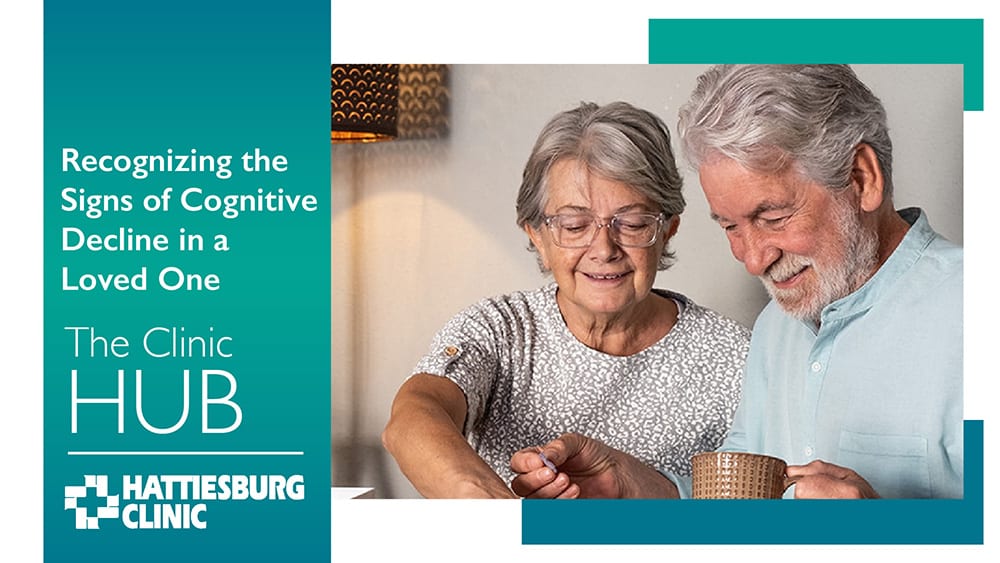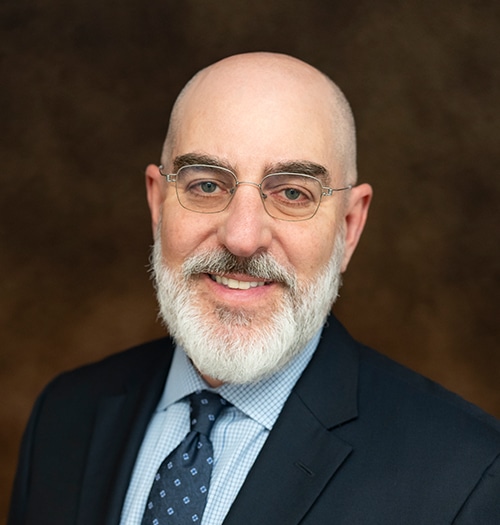How to Recognize the Signs of Cognitive Decline in Your Loved One
Watching a loved one experience cognitive decline can be one of life’s most challenging experiences. You may notice subtle changes in memory and thinking that spark concerns about conditions like Alzheimer’s or dementia, yet you may feel uncertain as to whether these worries are warranted. Recognizing and understanding these shifts is important, as it can open doors to early treatment to slow progression, provide strategies for symptom management, enable informed decision-making and deepen understanding of the condition.
Understanding Alzheimer’s Disease and Dementia
Alzheimer’s Disease
Alzheimer’s disease is a progressive, neurodegenerative brain disease that affects more than five million people in the United States and is the sixth leading cause of death in the country. While it is the most common form of dementia in people aged 65 and older, younger individuals are frequently being diagnosed. Alzheimer’s destroys memories and causes other severe brain changes, including:
- Loss of language
- Impaired spatial orientation
- Loss of interpersonal skills
- Impaired judgment
- Changes in personality
- Loss of organizational skills
Dementia
Dementia is a general term for the loss of memory, language, problem-solving and other thinking abilities severe enough to interfere with daily life. It also affects behavior, feelings and relationships. Abnormal brain changes cause disorders grouped under the umbrella term “dementia.”
Ronald L. Schwartz, MD, CPI, a physician at Hattiesburg Clinic Neurology and Memory Center, is the principal investigator for Alzheimer’s and Mild Cognitive Impairment (MCI) clinical trials and has decades of experience in medical practice and research. Schwartz stated, “As pathological changes accumulate in the brain, individuals slowly lose their identity and sense of self.” He added that for individual and caregiver this can be one of the hardest experiences.
Early Signs of Cognitive Decline
Cognitive impairment often begins with small, noticeable changes:
- Memory Issues: Forgetfulness that goes beyond occasional lapses, such as forgetting details of recent events or repeating questions and statements
- Difficulty with Tasks: Struggling with tasks that were once routine, like managing finances or following recipes
- Confusion: Getting lost or confused in familiar places or situations or having difficulty finding the right words in conversations
- Changes in Personality: Noticeable shifts in mood, behavior or personality traits that are out of character
These signs can be subtle at first but may progressively worsen over time, impacting various aspects of daily life. Schwartz added, “In addition to these changes, individuals can experience a range of emotions including grief, loss, anger, fear or even disbelief.” Early testing and evaluation can help provide guidance during this time.
Memory Tests, Diagnostics and Evaluations
Diagnosing cognitive decline involves a thorough clinical evaluation, including neurological exams, imaging studies and neuropsychological evaluations. Early diagnosis allows for the implementation of appropriate management strategies and potential participation in clinical trials aimed at advancing treatment options.
At Hattiesburg Clinic Memory Center, our board-certified physicians use various tools and assessments to evaluate cognitive function. Dr. Schwartz noted, “Neurocognitive testing is a method commonly used to assess a patient’s memory, executive function, mental speed and other cognitive functions.” After reviewing the test results, it can be determined if you or your loved one have cognitive issues and identify whether the cause is medical (such as an injury), psychological (like depression) or neurological (such as Alzheimer’s disease). A neurocognitive test measures fundamental cognitive function, not IQ.
How Hattiesburg Clinic Memory Center Can Help
Hattiesburg Clinic Memory Center operates as a clinical practice focusing on diagnosing and treating patients with memory disorders, including Alzheimer’s disease and MCIs. Under the direction of a fellowship-trained behavioral/cognitive neurologist, the Memory Center works with patients to establish appropriate care plans.
The Memory Center is unique due to its history as a clinical research site, providing opportunities to participate in various trials advancing Alzheimer’s treatments. We have both clinical and research experience in many areas, such as utilizing molecular imaging tools (amyloid PET, tau PET) as diagnostic biomarkers for early Alzheimer’s disease, developing care plans that include offering symptom-modifying treatments and advancing medical breakthroughs like Leqembi® and Kisunla®, recently FDA-approved, disease-modifying infusion treatments for mild cognitive impairment or mild dementia. Our experienced team of psychometric raters provides in-depth cognitive testing to help establish a diagnosis of cognitive impairment and conducts assessments to track changes over time.
Hattiesburg Clinic Memory Center is an Alzheimer’s Foundation-certified memory screening site and offers free screenings throughout the year. Schwartz added, “Our patient-focused activities combine to create a multidisciplinary environment that uniquely enhances the clinical experience. We are here to help you and your loved ones navigate the challenges of cognitive decline with expertise and compassion.”
###
About Hattiesburg Clinic Memory Center:
Hattiesburg Clinic Memory Center operates as a clinical practice focusing on the diagnosis and treatment of patients with memory disorders, including Alzheimer’s disease and early pre-Alzheimer’s characterized as Mild Cognitive Impairment.
Under the direction of a fellowship-trained, behavioral/cognitive neurologist, Memory Center will work with patients to establish an appropriate care plan.
About Hattiesburg Clinic:
Hattiesburg Clinic is Mississippi’s largest privately-owned, multispecialty clinic. Founded in 1963, Hattiesburg Clinic has expanded to include over 450 physicians and providers, along with 2,500 employees, serving patients across more than 17 counties in Mississippi. Hattiesburg Clinic is committed to being the health care provider of choice in the communities we serve.

